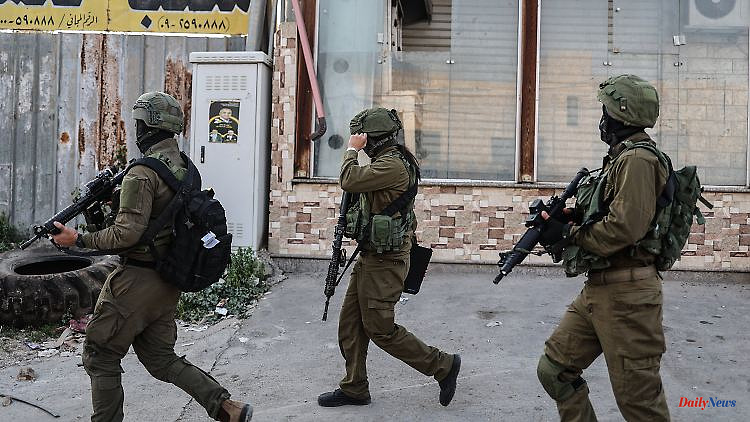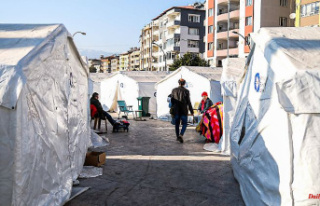Israeli-Palestinian negotiators agree on confidence-building measures at the first meeting of its kind in years. The Israeli government then made statements that cannot be reconciled with the results of the negotiations. Meanwhile, the situation in the occupied West Bank is spiraling out of control.
After a deadly attack on two Israelis in the northern West Bank, there have been serious riots by Israeli settlers. According to the Ministry of Health, a Palestinian was fatally injured by gunfire. It was initially unclear whether these had been handed over by settlers or soldiers. At least 100 Palestinians were injured, according to medics, when Israeli settlers in Huwara and surrounding towns set fire to scores of Palestinian homes, shops and cars.
They were taking revenge for the attack on two brothers, aged 20 and 22, who had been shot dead in Huwara, south of Nablus. They came from the nearby Israeli settlement of Har Bracha. The search for the Palestinian suspect continues. In view of the dangerous escalation of the situation, the army said it would add two more battalions to its troops in the West Bank.
Confidence-building measures by Israel and the Palestinians had previously been agreed at a meeting in the Jordanian port city of Aqaba. Government officials from the USA, Jordan and Egypt also took part in what are believed to be the first direct talks of this kind between the two sides in years. Another meeting has been scheduled for next month in Sharm el-Sheikh, Egypt.
Israelis and Palestinians want to suspend "unilateral measures" for three to six months, it said in a joint statement that gave no further details. Israel pledged not to discuss building new settlements in the West Bank for four months and not to approve new settlement outposts for six months.
However, this was followed by statements to the contrary from the Israeli government on Twitter: Prime Minister Benjamin Netanyahu stated that Israel had not committed to any construction freeze. The expansion and legalization of settlements in the West Bank should proceed as planned. Finance Minister Bezalel Smotrich, who controls the settlement construction, among other things, wrote: "The expansion and development of the settlement project will not be frozen for a single day." The Israeli army will also crack down on terrorism throughout the West Bank without any restrictions, he stressed. How the obvious contradiction between the declarations of the government politicians and the Israeli negotiating delegation in Aqaba came about was left open.
Netanyahu called on his compatriots on Sunday evening "not to take the law into their own hands". The leader of the opposition Labor Party, Meirav Michaeli, spoke of a "pogrom" by the settlers against the Palestinians. The meeting in Aqaba came about three weeks before the start of the Muslim month of fasting, Ramadan. In recent years, tensions between Israelis and Palestinians have often increased sharply during this time.
The security situation in Israel and the Palestinian territories has long been extremely tense. However, since Netanyahu's right-wing religious government took office two months ago, it has once again come to a head. Eleven Palestinians were killed and more than 100 injured in an Israeli military operation in Nablus on Thursday. Since the beginning of the year, twelve Israelis and one Ukrainian have been killed in Palestinian attacks. In the same period, 63 Palestinians lost their lives - they were shot in confrontations with the Israeli army or after their own attacks.
The Israeli cabinet has now approved a draft law that provides for the death penalty for terrorists. The controversial proposal still has to pass several readings in Parliament before it can come into force. A first vote is expected on Wednesday. Israel conquered the West Bank and East Jerusalem in 1967. More than 600,000 Israeli settlers live there today. The Palestinians claim the territories for an independent state of Palestine with the Arab-influenced eastern part of Jerusalem as the capital.












